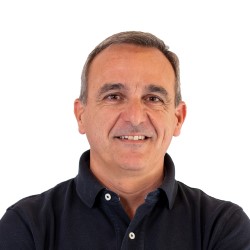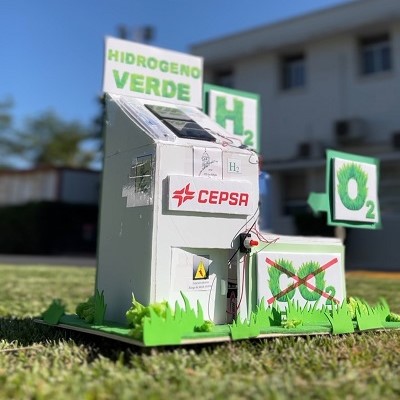- An electrolyzer that produces green hydrogen built by five students from the IES Rábida of Huelva wins the Energy Campus prize
- Students from the province have submitted more than 60 papers on the future of energy and hundreds of drawings about the Primera de Palos Lagoon
With the Energy Campus program, Fundación Cepsa provides teachers and students from 36 secondary schools in Huelva with educational material to help them learn how the current energy system works and learn first-hand about the challenges posed by the ecological transition and decarbonization. One of the objectives of the Campus is for students to imagine what the future of society will be like, encouraging them to go beyond existing norms through their creativity. To this end, they are encouraged to participate in a competition with innovative and imaginative projects.
An energy self-sufficient cultural center in the heart of the port of Huelva, running shoes that charge a cell phone battery with their owner's strides, a wind turbine built with recycled materials, and a plant that produces hydrogen from solar panels. These are some of the more than 60 projects presented in this challenge proposed by Fundación Cepsa.
For Narciso Rojas, head of Fundación Cepsa in Huelva,


